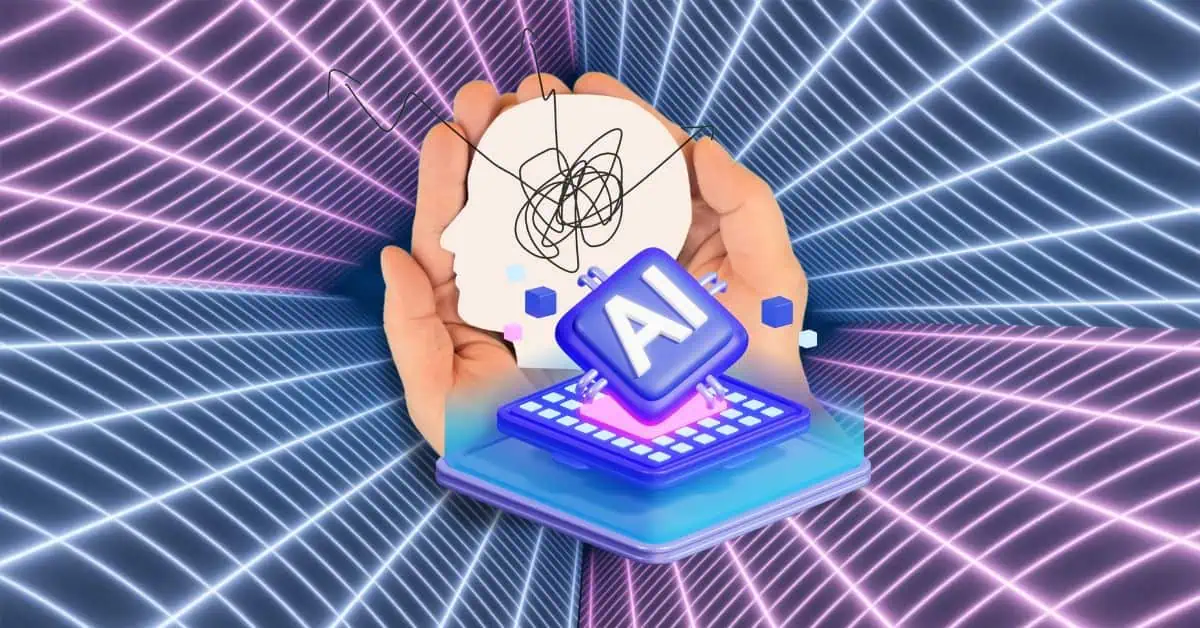After a traumatic breakup with my significant other of eight years, I was super hesitant to put myself on the market again and hop back into the dating pool. The overwhelming fear of being hurt again and the emotional upheaval from my previous romantic relationship made dating feel like an impossible task—I wasn’t sure if I was up for it. But I did join a dating app to at least try. And while a new match brought a little excitement (okay, more like an ego boost or a hit of serotonin), it also brought on a wave of anxiety and possibly nausea. I would’ve loved to have some guidance and support to handle this combination of emotions at the moment; after all, I couldn’t exactly call my therapist at 1 a.m.
This made me start thinking: could AI, like chatbots and virtual dating coaches, give people the support they want and need during these fraught moments of online dating? How could technological advancements help singles looking for love manage the emotional challenges and improve mental health for those of us who are dipping their toes or diving headfirst, depending on their state of mind, into the dating world?
How AI Could Support Mental Health in Dating
Dating is full of wild tempestuous peaks and valleys. From the excitement of a new match to the disappointment of being ghosted in the DMs, the emotional toll on your mental health can be pretty substantial. How could AI help with this? We’re glad you asked! Here’s what it could potentially do:
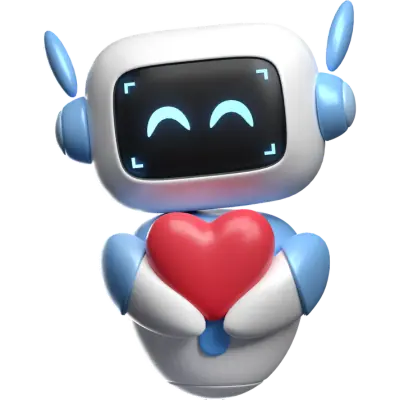
Emotional Support Via Chatbots
Chatbots that are designed and programmed for mental health could provide emotional support STAT. They could give words of comfort, validate your feelings, and even suggest coping strategies. And unlike IRL human friends (and therapists), chatbots would be available 24/7, 365. It would be a reliable source of support at any time, day or night.
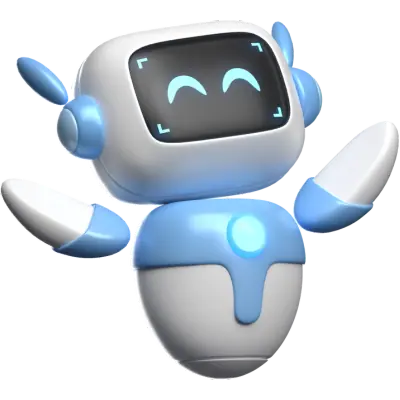
Personalized Dating Advice
AI-powered dating coaches could analyze users’ dating patterns and give singles tailored advice, like improving profile pictures, writing better messages, or even suggesting the most compatible matches! Virtual coaches could offer some sage advice that boosts confidence and improves the dating experience.
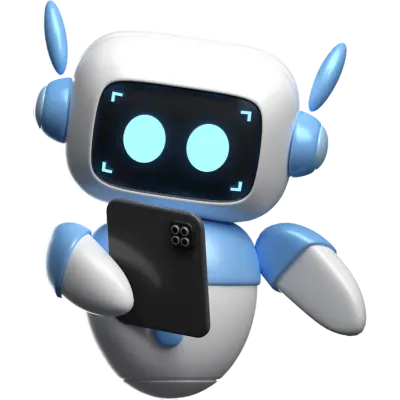
Mindfulness and Stress Management
There are already tons of dedicated meditation and mindfulness apps—why not incorporate these things into dating apps with AI? The chatbots could be created to promote and remind users about mindfulness and stress reduction. They’d be able to guide users through breathing exercises, meditation or nudge them with reminders to take breaks from dating apps in order to keep up a healthy balance.
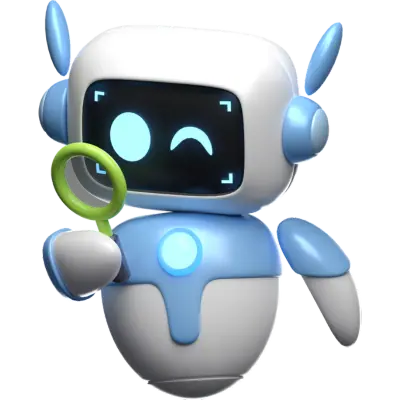
Detecting and Preventing Burnout
AI could monitor user activity and pick up on signs of dating burnout. AI could urge users to take a break or suggest mental health resources by analyzing patterns like decreased engagement or negative sentiment in messages.
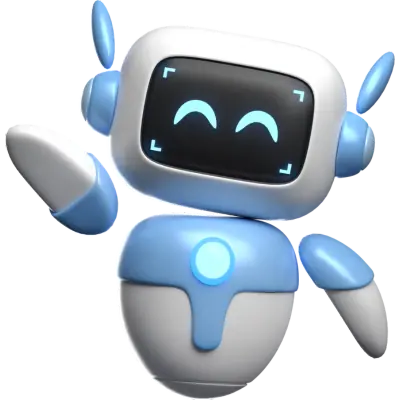
Facilitating Positive Interactions
AI could improve communication between matches by coming up with positive and engaging conversation starters or icebreakers. This could assist users in handling any awkward or tricky chats and avoid misunderstandings to create meaningful connections.
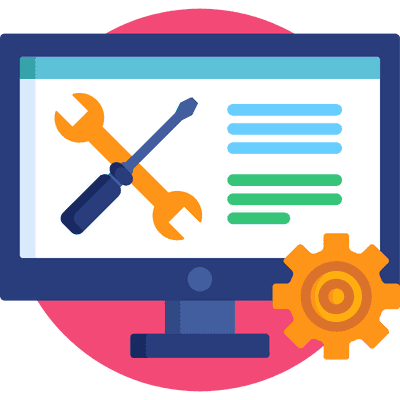
Practical Solutions and Support
Even though AI’s role in dating is a work in progress, its potential is obvious. Apps like Replika hint at the possibilities—the platform offers companionship and mental health support through chatbots. Similarly, AI-driven dating apps like Hinge are beginning to utilize algorithms to recommend compatible matches and conversation tips. Innovations like these illustrate how AI could become a force to be reckoned with in the sometimes chaotic dating world.
For someone like me, having access to an AI chatbot would mean I could vent any frustrations and get feedback at any time, and I know I’m not alone in thinking it would be helpful. A virtual dating coach could also be a wingman and refine my dating profile and interactions, making the dating process feel less like a chore and making it a happier experience.
There are going to be ups and downs in dating—it’s an inevitable fact. But AI could be an excellent ally! By giving consistent support, personalized advice, and practical solutions, AI would be able to help users handle the dating battlefield in a healthier way. The future of dating could become a whole lot brighter with the assistance of AI.
The Emotional Rollercoaster of Dating
Dating is, at times, an emotional rollercoaster—one with loop-de-loops. The highs feel amazing, and the lows feel really, well, low. Some of the most common mental health challenges faced by people in the dating scene include, but are not limited to, the following:
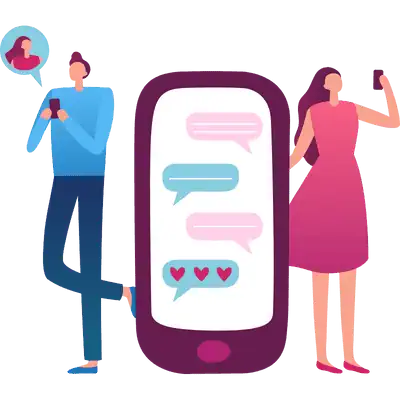
- Anxiety: The uncertain ground you’re on of whether someone will like you back or the amount of pressure placed upon you to make a good impression can cause a lot of anxiety. What does this equal? Overthinking every single interaction and feeling constantly on edge.
- Rejection: Rejection is a brutal part of dating, and it hurts. Being ghosted after a few dates or not getting a mutual match on a dating app can take a toll on one’s self-worth and bring about feelings of inadequacy or being “less than.”
- Infidelity: Finding out a romantic partner cheated on you is devastating. It shatters trust and can leave lasting scars, making it difficult to feel secure in future relationships.
- Breakups: The end of a relationship, whether it is long-term or brief, can be one of the most painful experiences. The loss of a partner brings with it feelings of grief, loneliness, and heartbreak.
- Self-Esteem Issues: Dating can trigger insecurities about one’s appearance, personality, and if you are worthy of love. Constantly comparing oneself to others and seeking validation can wear away one’s self-esteem.
User Testimonials
Here are a few anonymized testimonials from people who shared their emotional experiences in the dating world:
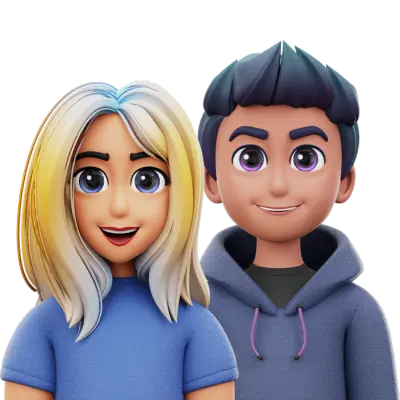
- Anxiety: “I get really nervous before dates. I worry about saying something stupid or not being interesting enough. Sometimes, the anxiety is so bad that I cancel the date altogether.”
- Rejection: “Getting ghosted after a few great dates was hard. I questioned what I did wrong and if I’m ever going to find someone who actually wants to be with me.”
- Infidelity: “Finding out my partner was cheating was a nightmare. I felt betrayed and wondered if I would ever be able to trust anyone again.”
- Breakups: “The breakup with my ex was brutal. We had been together for years, and suddenly, I was alone. The loneliness was overwhelming, and it took a long time to feel like myself again.”
- Self-Esteem Issues: “Using dating apps has been tough on my self-esteem. Seeing other people’s profiles and not getting matches made me feel like there’s something wrong with me.”
Handling the emotional highs and lows of dating is a challenge that most people face on a regular basis. And although AI will not solve these issues or heal a heartbreak, it does have good potential to be a supportive tool in managing the emotional landmines of being on the frontlines of dating!
AI-Powered Emotional Support
Emotional support is a necessity when it comes to matters of the heart, but it isn’t always immediately accessible or available when we need it! AI has the potential to be a stand-in ally—it would give real-time support through chatbots and virtual therapists, tracking moods and giving personalized advice based on users’ mental health data.
AI Chatbots and Virtual Therapists
AI chatbots and virtual therapists could serve as accessible and instant sources of support—digital assistants would be created and programmed to have conversations with users, helping them handle any emotional challenges by providing guidance and empathetic responses.

- Real-time Interaction: AI chatbots can offer immediate responses, unlike traditional therapy, which requires scheduling and waiting. Let’s say that someone is feeling super anxious before a date or sad after a rejection: they could turn to an AI chatbot for instant support. These chatbots are designed to give a range of helpful responses to offer a little comfort and practical advice that is based on general psychological principles.
- Cost-Effective Solution: Virtual therapists powered by AI would be a much more affordable alternative to human therapists, making mental health support easily accessible to a bigger demographic. The virtual therapists would ideally use natural language processing to understand and respond to users, creating a therapeutic environment that can help users process their feelings and thoughts.
- Anonymity and Privacy: Some people find it much easier to open up and chat with a virtual entity, especially about sensitive topics. AI-powered support would guarantee privacy and possibly reduce the stigma that is associated with seeking out professional mental help, encouraging more individuals to reach out when they need it.
Mood Tracking
AI’s ability to track and analyze emotional states over time could be incredibly beneficial for those navigating the fluctuating emotions that come with the territory of dating. Mood tracking involves the continuous monitoring of a user’s emotional well-being, identifying patterns, and providing insights that can help manage mental health in a better way.
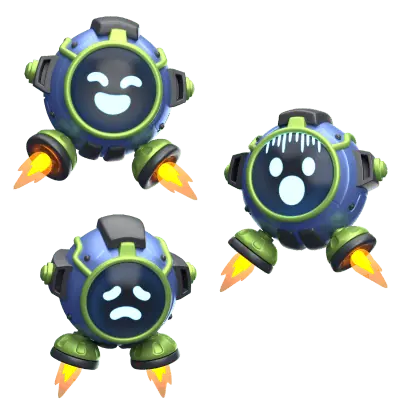
- Continuous Monitoring: By analyzing data from user interactions, like text messages and voice notes, AI might be able to detect any changes in mood. This continuous monitoring would identify patterns that might indicate serious emotional issues, such as recurring anxiety or prolonged sadness.
- Predictive Analysis: With enough data, AI can predict potential emotional downturns and urge users to take preventive actions. As a hypothetical, if the AI detects signs of heightened stress levels, it can suggest relaxation techniques or encourage reaching out to a friend or counselor before the stress escalates or they reach a breaking point.
- Personalized Feedback: Users would receive feedback based on their own distinctive emotional patterns. This personalized approach can assist users in understanding what their emotional triggers are and how to manage them better. Over time, this can equate to improved emotional resilience and better coping strategies.
Personalized Advice
AI can play a big role in providing personalized advice and coping strategies based on users’ mental health data. AI can tailor its recommendations to meet each user’s needs by understanding individual emotional profiles.
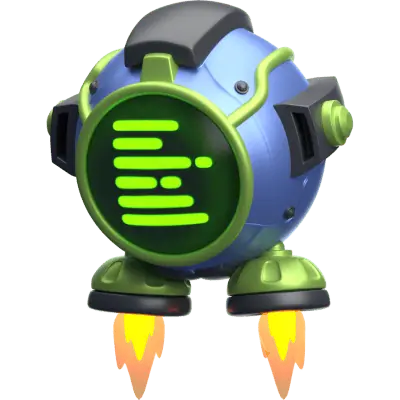
- Data-Driven Insights: AI collects and analyzes data from different sources, like user interactions and mood-tracking logs, to offer insights that are specific to the individual’s experiences. This personalized data can help users make the best decisions about their dating life, such as when to take a break or how to handle rejection or ghosting.
- Customized Coping Strategies: Based on the user’s emotional state and history, AI can suggest coping strategies that are the most likely to work for them. For example, if someone tends to feel panicky before dates, the AI might recommend breathing exercises, positive affirmations, or even setting up a calming pre-date routine. It’s called self-care, learn about it and do it!
- Ongoing Support: Unlike traditional methods that might provide static advice, AI can continuously adapt and adjust its recommendations as it learns more about the user. This dynamic support means that the advice remains relevant and productive over time.
- Building Emotional Intelligence: By interacting with AI, users can develop better emotional awareness and intelligence. The personalized feedback and advice help users understand their emotions and how to handle them, resulting in healthier and more fulfilling romantic relationships.
AI has the unmatched potential to provide much-needed emotional support in the dating world. Through chatbots and virtual therapists, mood tracking, and personalized advice, AI can help users manage the emotional highs and lows of dating in a healthier way, providing a supportive tool to improve their mental well-being. Although AI will never be able to replace human interaction, it can be used as a valuable placeholder, giving instant and personalized support to those who need it ASAP.
Practical Applications of AI in Dating Apps
Yes, it’s worth it when it pays off, but dating is a super stressful and mentally taxing experience! How could AI help in this area? By implementing three practical applications: calming features, positive reinforcement, and rejection management.
Calming Features
Adding AI-driven calming features in dating apps could help users better cope with anxiety and stress. These features ideally would include the following:

- Guided Meditation: You had a stressful day, and your anxiety is off the charts—and right before a big date. An AI could suggest a guided meditation session to help you center yourself and feel more namaste. These sessions could be personalized to fit various time frames, from quick 5-minute relaxers to longer, more immersive experiences. By analyzing user data, the AI can recommend the most useful type of meditation based on the user’s previous responses.
- Breathing Exercises: In moments of high stress, like waiting for a response from a match you like, an AI feature could prompt users with breathing exercises. These exercises are scientifically proven to reduce anxiety and promote calmness. The app could guide users through a series of deep breaths, helping to regulate their heartbeat and clear their minds.
- Mindfulness Practices: Mindfulness is about staying present and in the moment, which can be hard in online dating. An AI could send out daily mindfulness tips and exercises, helping users to remain grounded. This might include reminders to take breaks from the app, suggesting taking a walk, or providing simple exercises to practice gratitude and being kind to yourself.
Positive Reinforcement
Positive reinforcement is a powerful tool that AI could use to uplift users’ morale, making the dating experience more fun and less nerve-racking.
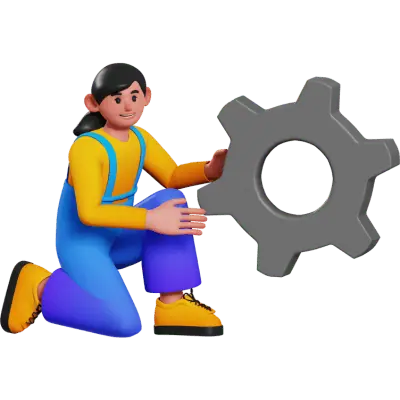
- Encouraging Messages: Dating apps could incorporate AI-generated messages of encouragement and positivity. For example, after sending a message to a match, the app could display a message like, “Great job putting yourself out there!” These small affirmations can boost users’ confidence and mitigate any feelings of rejection.
- Celebrating Small Wins: AI could help users celebrate small victories, like starting a chat or scheduling a date. Recognizing these steps as achievements can help users feel more accomplished and motivated. The app could send congratulatory messages or even provide rewards, such as unlocking new features or offering discounts on premium memberships.
- Personalized Affirmations: By analyzing user data, AI can generate personalized affirmations based on individual experiences and preferences. For instance, if a user has expressed insecurities about their profile, the AI could offer personalized tips and compliments, reinforcing the user’s qualities and strengths.
Rejection Management
Rejection is a normal, common, and painful part of dating, but AI could help users cope with it in a healthy and constructive way.

- Empathetic Responses: When a user faces rejection, the AI could provide empathetic and supportive responses. Instead of a generic “better luck next time,” the app could offer comforting words and advice on how to move forward. This could include suggesting a short break from the app or doing something they love to do to distract and brighten their mood.
- Reflection Prompts: AI can prompt users to reflect on their experiences in a constructive manner. For example, after a date that didn’t go well, the app could ask questions like, “What did you learn from this experience?” or “What would you do differently next time?” This encourages users to look at rejection as a learning opportunity rather than a personal failure (it is rarely personal, FYI).
- Connecting with Resources: For those who really struggle with rejection, AI could connect users with additional mental health resources, like articles, videos, or even therapists. Providing access to these resources can help users process their emotions and develop healthier coping mechanisms.
Integrating AI into dating apps has the potential to provide substantial and solid emotional support through calming features, positive reinforcement, and constructive rejection management. These innovations could make the dating experience more supportive and less stressful; when factoring in the emotional aspects of dating, AI can greatly improve user well-being by creating a more positive experience.
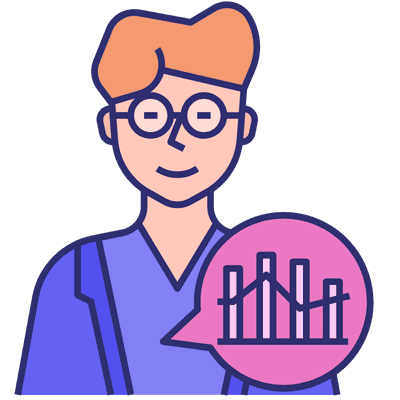
Expert Insights
Psychologists see both potential and challenges in integrating AI into mental health support. Dr. Johannes Eichstaedt and Elizabeth Stade, from Stanford and the University of Pennsylvania, respectively, emphasize AI’s benefits to psychotherapy. They argue that AI can handle routine tasks like intake interviews and progress notes, freeing therapists to focus on complex diagnostic and treatment work. This can potentially improve the efficiency and effectiveness of mental health care, making therapy more accessible and less burdensome for both therapists and clients.
“Important parts of the diagnosis and treatment pipeline can be cumbersome for both the therapist and the client, like symptom-tracking questionnaires or progress notes,” Stade says. “Handing these lower-level tasks and processes to automated systems could free up clinicians to do what they do best: careful differential diagnosis, treatment conceptualization, and big-picture insights.
“Patients stand to reap similar benefits from AI systems. Psychotherapy often involves tasks that are assigned to patients between sessions, like practice worksheets and activities to be completed at home. These may be designed, for example, to help a patient track her thoughts and feelings for discussion in her next therapy session. An AI system could make this process much more engaging and dynamic and, as a result, more effective.
“Finally, AI could dramatically improve the scientific and experimental foundations behind different therapeutic approaches. For one, as chatbot technology improves, future bots could potentially support controlled trials with combinations of hundreds of distinct interventions across thousands or hundreds of thousands of patients — an impossibility if human therapists were needed to introduce and deliver each intervention. Beyond enabling such “super science,” AI is already being used to analyze transcripts of therapy sessions and determine whether interventions are being used properly.”
Dr. Stade highlights the promise of AI in enhancing therapeutic interventions. By analyzing therapy session transcripts, AI can help ensure that therapeutic techniques are applied correctly, potentially leading to better outcomes. This kind of support could be invaluable in training new therapists and maintaining high standards in therapeutic practice.
However, experts caution against over-reliance on AI. There is a concern that AI’s rapid implementation in mental health could lead to ethical and practical issues. Dr. Eichstaedt notes that while AI can support therapy, it is crucial to move cautiously and responsibly, ensuring that these technologies are rigorously evaluated for safety and effectiveness before being widely adopted.

AI Developers’ Perspectives
From the developers’ side, companies like Ieso and Lyssn are already integrating AI into mental health care with promising results. Ieso, for instance, has used AI-driven techniques to improve recovery rates for depression and anxiety disorders significantly. Their approach involves using natural language processing (NLP) to enhance the quality of therapy sessions, which in turn allows therapists to treat more clients effectively.
Dean Repper from Trent Psychological Therapies Service discusses how AI can help standardize best practices among therapists. This technology can offer insights into what therapeutic techniques are most effective, helping to train and improve therapist performance. While there may be initial resistance from experienced therapists, the goal is to use AI as a supportive tool rather than a replacement, improving the overall quality of care.
“Researchers believe they can use insights from that data to give therapy a long-overdue boost. The result could be that more people get better, and stay better,” according to the MIT Technology Review.
Both psychologists and AI developers see there is great potential in AI’s ability to support mental health care, but there is a balance that needs to be had with innovation and strong oversight to maximize benefits while minimizing risks.
Addressing Ethical and Privacy Concerns
Using AI for mental health support in dating apps introduces some pretty big privacy concerns, as AI systems typically require access to personal and sensitive data to function effectively, which raises issues about how this data is collected, stored, and used. Private AI companies controlling user data may pose privacy risks even with anonymization efforts. This situation necessitates strong contracts to delineate the rights and responsibilities of the involved parties, addressing liability for any potential negative outcomes.
To mitigate privacy concerns, developers can use generative models to create synthetic data that mimics real user data without actually using actual personal information. This approach allows for machine learning applications while protecting user privacy. But the initial phase of creating these models still requires real data, emphasizing the need for the most stringent privacy measures during this period.
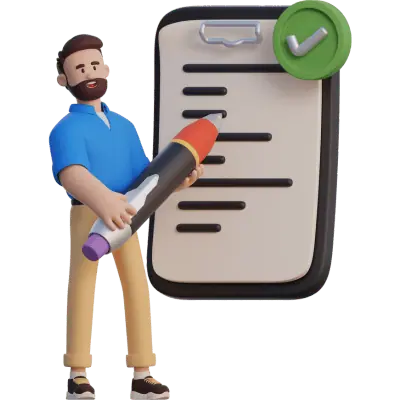
Ethical Considerations
The use of AI in mental health and dating apps brings up several ethical issues. For example, AI systems have to be designed and used in ways that prioritize human rights and ethical standards. This includes verifying that AI does not perpetuate biases or discriminate against users based on their data. The World Health Organization (WHO) highlights that while AI can greatly improve health outcomes, it also poses risks such as unethical data collection, algorithmic biases, and potential threats to patient safety and cybersecurity.
Moreover, the unregulated use of AI might prioritize commercial interests over the well-being of users. This could lead to situations where AI technologies are used for surveillance or social control rather than supporting user mental health. Ensuring that AI systems are used ethically involves balancing the benefits of AI with the need for privacy, transparency, and user consent. This includes regularly updating regulations to keep pace with rapid technological advancements and ensuring that users can easily withdraw their data if they choose to do so.
“Designers, developers and users should continuously and transparently assess AI applications during actual use to determine whether AI responds adequately and appropriately to expectations and requirements. AI systems should also be designed to minimize their environmental consequences and increase energy efficiency. Governments and companies should address anticipated disruptions in the workplace, including training for health-care workers to adapt to the use of AI systems, and potential job losses due to use of automated systems,” the WHO global report cautions.
AI has enormous potential to transform mental health support in dating apps, but careful consideration of privacy and ethical issues is a necessity. Implementing strong data protection measures and ethical guidelines will help ensure that AI improves user well-being without trampling on or compromising their privacy or rights.
Tips for Users
If and when AI mental health features do become available in dating apps, the following are some tips so you can make the most of them!
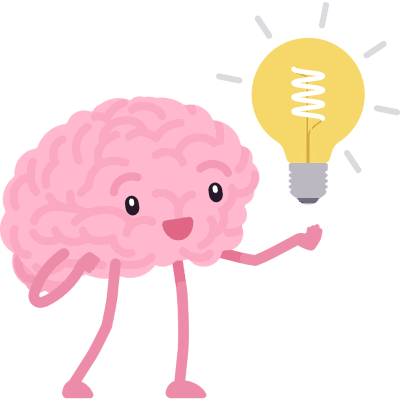
- Engage Regularly with AI Features: Make it a habit to use the AI-driven tools and features regularly. Whether it’s guided meditations, mood tracking, or personalized advice, consistency is key. Regular interaction helps the AI learn more about you, allowing it to provide better support tailored to your needs.
- Be Honest and Open: For AI to be effective, it needs accurate information. Be honest about your feelings, experiences, and mental health. This will help the AI provide more relevant and helpful advice.
- Set Goals: Use the AI features to set personal goals related to your dating journey and mental health. Whether it’s building confidence, managing anxiety, or improving communication skills, having clear objectives can help you track progress and stay motivated.
- Take Advantage of Personalized Insights: AI can provide insights into your behavior and emotional patterns. Use these insights to understand yourself better and make informed decisions about your dating life.
- Combine AI Support with Real-World Activities: Balance your virtual support with real-world activities. Use AI suggestions as a guide for actions you can take offline, like joining a social group, practicing mindfulness exercises, or attending workshops.
Self-Care Strategies
AI features can be incredibly supportive but should be part of a broader self-care strategy. Here are additional self-care strategies to practice:
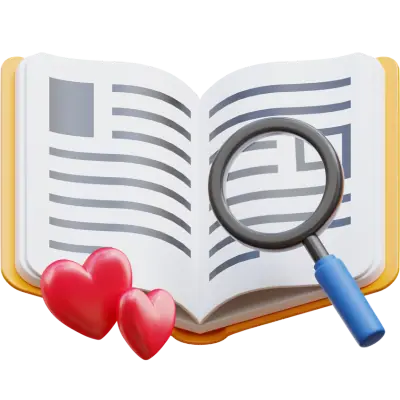
- Physical Activity: Regular exercise can significantly impact your mental health. Activities like walking, yoga, or even dancing can help reduce stress and improve your mood.
- Healthy Eating: Nutrition plays a big role in mental well-being. Eating a balanced diet rich in fruits, vegetables, and whole grains can help maintain your energy levels and stabilize your mood.
- Sleep Hygiene: Make sure you get enough quality sleep. Establish a regular sleep routine, create a comfortable sleeping environment, and avoid screens before bedtime.
- Social Connections: Build and maintain strong social connections. Spend time with friends and family, join community groups, and do what interests you.
- Mindfulness and Meditation: Practice mindfulness and meditation to stay grounded and present. These practices can help reduce anxiety and improve your overall emotional health.
Getting Professional Help
While AI can provide solid support, you have to recognize when actual professional help is needed. Here are a few easy guidelines to follow:

- Recognize Signs of Distress: If you experience persistent feelings of sadness, anxiety, or hopelessness that interfere with your daily life, it may be time to seek professional help.
- Reach Out for Therapy: Consider reaching out to a licensed therapist or counselor. Professional mental health providers can offer personalized care and therapeutic interventions that AI cannot.
- Use Crisis Resources: If you are in a crisis or experiencing thoughts of self-harm, contact a crisis hotline or seek immediate help from a healthcare provider.
- Combine AI and Therapy: Use AI features as a supplement to professional therapy. Share insights from AI tools with your therapist to enhance your treatment plan.
By integrating AI features with these self-care strategies and professional help, you can create a comprehensive support system to navigate the emotional challenges of dating. Balancing technology with human interaction is the best way for a holistic approach to your mental health.
Recap of What We Learned
Dating can be a lot—it’s not always smooth sailing! But AI integration into dating apps could transform the way users handle any ups and downs that come with it. To recap, here is how AI could potentially support mental health during dating:

AI-Powered Emotional Support
- AI Chatbots and Virtual Therapists: Provide immediate counseling and support, helping users manage their emotions with real-time guidance.
- Mood Tracking: Monitor and analyze emotional states over time, offering personalized interventions based on mental health data.
- Personalized Advice: Tailor advice and coping strategies to individual needs, offering a customized support system.

Practical Applications of AI in Dating App
- Calming Features: AI-driven tools like guided meditation, breathing exercises, and mindfulness practices can help users manage stress and anxiety.
- Positive Reinforcement: AI-generated messages of encouragement can uplift users’ morale and maintain a positive mindset.
- Rejection Management: Tools to help users process rejection healthily, offering strategies to cope and move forward.

Ethical and Privacy Considerations
- Data Privacy: Protecting user data is crucial, necessitating robust privacy measures to safeguard sensitive information.
- Ethical Use: Guaranteeing AI applications adhere to ethical standards, avoiding biases, and prioritizing user well-being over commercial interests is essential.

Tips for Users
- Maximizing Benefits: Engage with AI features regularly, set personal goals, and use AI insights to make informed decisions about dating.
- Self-Care Strategies: Complement AI support with physical activity, healthy eating, sleep hygiene, social connections, and mindfulness practices.
- Getting Professional Help: Recognize when professional mental health support is needed and use AI as a supplementary tool.
AI’s potential to support mental health in dating is promising, but careful consideration of privacy and ethics is paramount. By combining AI capabilities with traditional self-care practices and professional support, users can create a good balance for handling the emotional challenges of dating.
Final Thoughts
The integration of AI into dating apps holds great promise for making the dating experience less emotionally charged and healthier. By harnessing the power of AI, we could potentially alleviate some of the common emotional challenges associated with dating, like anxiety, rejection, and self-esteem issues. AI’s ability to provide personalized support and real-time emotional assistance could improve how individuals handle the highs and the lows.
Think about dating with AI in your corner; you’d have a companion that understands your emotional state and gives immediate support. From offering guided meditations to sending encouraging messages, AI could help you keep a positive mindset throughout the entire dating process. It could also help users reflect on their experiences, offering wisdom that adds to personal growth and better decision-making.
Moreover, the ethical and privacy considerations around AI in mental health highlight the importance of using these technologies responsibly. Developers and users alike have to prioritize data security and ethical usage to make sure these tools actually benefit mental well-being and don’t harm it.
While these features are still on the horizon, it’s exciting to think about their potential. If and when they do come about, you should absolutely take advantage of them to improve your dating experience and support your mental health.
If you were to engage with the AI features regularly, be honest about your feelings, and use the insights provided to understand yourself better, it could serve you well. By combining these tools with self-care practices and getting professional help when needed, you’d be able to build up a comprehensive support system that can help!
As we look ahead to the future of dating apps, the integration of AI could change not only how we date but also how we take care of our mental health while doing so. The potential is vast, and it’s an amazing time to be part of a potential technological revolution in dating.
